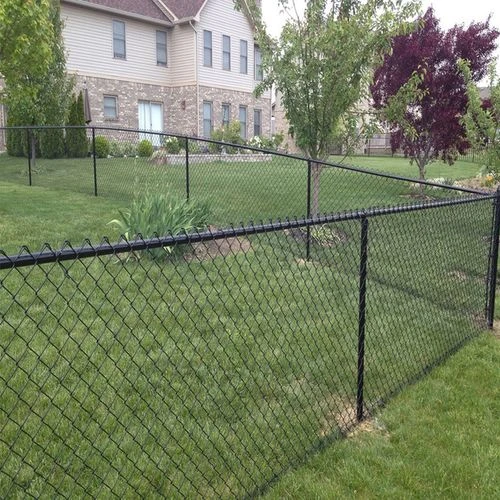 TEL:
+86-13102802206
TEL:
+86-13102802206
 Email:
fencenetting@china.com
Email:
fencenetting@china.com
 Language
Language
 TEL:
+86-13102802206
TEL:
+86-13102802206
 Email:
fencenetting@china.com
Email:
fencenetting@china.com
 Language
Language


The Versatility of Welded Wire Panels An Overview
Welded wire panels are a ubiquitous solution in various industries, from agriculture to construction and even decorative fencing. Their strength, durability, and design flexibility make them an invaluable resource for numerous applications. In this article, we will explore the different types of welded wire panels, their uses, advantages, and some considerations when selecting the right panel for your project.
What Are Welded Wire Panels?
Welded wire panels are constructed from intersecting wires that are joined together by welding, creating a rigid grid-like structure. These panels come in various sizes, wire gauges, and mesh openings, making them suitable for diverse applications. The manufacturing process often involves galvanizing the steel, which helps to enhance corrosion resistance, extending the lifespan of the panels even in harsh environments.
Applications of Welded Wire Panels
1. Agriculture One of the primary uses of welded wire panels is in agricultural settings. Farmers often use these panels to create livestock enclosures, animal pens, and fencing for crops. The sturdy construction helps to keep animals secure while allowing for adequate airflow and visibility—a key factor in animal welfare.
2. Construction In the construction industry, welded wire panels are used for various purposes, including reinforcing concrete structures. They are often employed as rebar alternatives in slabs, walls, and foundations, providing added strength and stability. Their uniform mesh spacing ensures even distribution of loads.
3. Security Fencing Welded wire panels are popular choices for security fencing in both commercial and residential properties. The strong structure serves as an effective barrier against intruders while maintaining visibility, which is an essential feature for surveillance purposes. Options such as decorative designs can enhance aesthetic appeal without compromising on security.
4. Garden and Landscaping In residential settings, welded wire panels can be an attractive choice for garden fencing, trellises, and raised garden beds. They allow plants to grow while providing support and protection from pests. Additionally, the panels can be painted or finished to blend with garden aesthetics.
5. Industrial Uses Industries utilize welded wire panels for partitioning spaces, creating shelves, and manufacturing cages for storage or transport. Their robust nature makes them suitable for environments that demand durability, such as warehouses and manufacturing facilities.
Advantages of Welded Wire Panels

Welded wire panels offer numerous benefits
- Strength and Durability The welding process creates a robust unit that can withstand significant force, making it less prone to breaking or warping compared to other forms of fencing or mesh.
- Cost-Effectiveness Due to their longevity and low maintenance requirements, welded wire panels can be a more economical choice in the long run.
- Versatility With a wide range of sizes, designs, and coatings available, these panels can be customized for specific projects, making them adaptable to various needs.
- Ease of Installation Welded wire panels are relatively easy to install, often requiring minimal tools. This ease of setup can save both time and labor costs.
Considerations When Choosing Welded Wire Panels
When selecting welded wire panels, it's important to consider several factors
- Mesh Size The size of the openings in the mesh should correspond to the needs of your application; for example, smaller openings are preferable for keeping out small animals.
- Wire Gauge The thickness of the wire contributes to the panel's strength. Heavier gauges are more suitable for high-security applications, while lighter gauges may suffice for decorative uses.
- Coating and Finish Depending on the environment, you may need galvanized or powder-coated panels for added corrosion resistance.
In conclusion, welded wire panels are a versatile solution in different fields, offering a range of benefits and applications. Whether for agricultural, construction, or decorative purposes, they provide a durable and cost-effective option. When selecting the right panel, consider the specific requirements of your project to ensure optimal functionality and longevity.